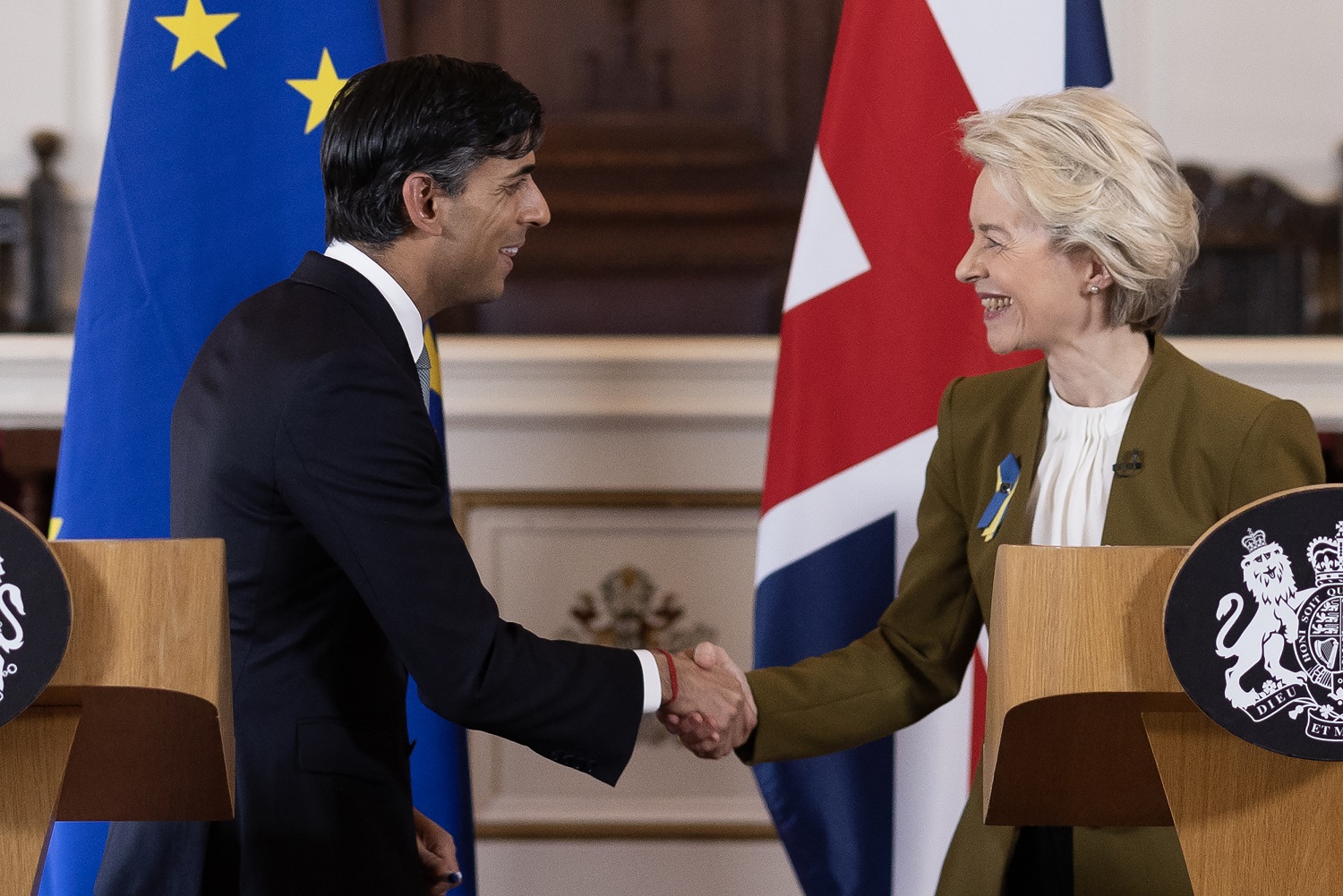The Northern Ireland protocol and its impacts on Sterling
The pound has been lifted by Monday’s agreement between the UK and EU that rids the pair of the hated Northern Ireland protocol (or at least moulds it into a shape that’s acceptable to both sides).

The pound surged after Rishi Sunak and Ursula von der Leyen announced a UK-EU deal on Northern Ireland called the new 'Windsor Framework'.
>> Sterling remains vulnerable
Could this be a spark towards more positivity about the UK’s departure from the EU and perhaps even allow the pound to recapture the levels last seen the day before the Brexit referendum in June 2016?
If you look at a chart of the pound’s effective exchange rate index since the Brexit referendum you will see that the vote to leave the EU caused a massive and rapid slump in the pound, from which sterling has never recovered. True, after the initial shock of the referendum and adjustment in sterling, the pound did not then go on to plunge much lower levels.
Instead, it has rather flatlined in trade-weighted terms as reflected in the fact that euro/sterling has rarely been outside a range of 0.85-0.90 compared to the 0.75-0.80 range that we saw in the months leading up to the Brexit referendum in June 2016.
In effect, the FX market has seen Brexit as a huge one-off negative shock, or a sort of deglobalisation shock as former BoE Governor Carney put it at the time. The fact that sterling has never recaptured its pre-referendum levels suggests that the market saw Brexit as a huge mistake in 2016 and sees it as just as big a mistake today. That’s not surprising.
Before the referendum, there was plenty of research suggesting that Brexit would damage the economy and it seems as if economic performance has actually been worse than even the most dire pre-referendum forecasts. Of course, things like the pandemic and the war in Ukraine have come along but, even if you account for these, it seems fair to say that the UK has done worse out of Brexit than even the pessimists anticipated.
But the question now is whether small victories, like a solution to the NI protocol can help the UK economy – and the pound – regain some semblance of composure and, perhaps even generate some outperformance. Perhaps sadly Mr. Steve Barrow, Head of Standard Bank G10 Strategy, suspects that the answer is ‘no’. On an economic level, there might have been a lot of fuss made about the protocol but, in reality, its demise won’t help the UK economy very much. If anything, its demise seems more likely to open up diplomatic and political opportunities. One of these is at the international level and involves the US. For it was always clear that the risk of a return to violence on the island of Ireland, created by the protocol, could cause the US to deny the UK the cherished free trade deal that it so desperately wants.
>> Sterling could perform better
However, as the years have rolled on from the EU referendum, and the start of Brexit in 2021, it has become clearer and clearer that the US is unlikely to do a free trade deal with the UK whether or not Ireland is at peace. Moreover, we might even start to wonder whether the prize of a free trade deal with the US is worth having any more given the rather protectionist policies followed first by former president Trump and now by current incumbent Biden.
Another point is that the UK’s failure to strike notable trade deals with other countries after Brexit began does not seem to be due to others having the same concerns as the US over the NI protocol. Hence, Mr. Steve Barrow doubts that its removal or adjustment will suddenly send countries into the arms of the UK for a free trade deal.
Finally, the breakthrough on the protocol could lift PM Sunak’s standings, both in terms of seeing off any challenge from other would-be leaders, like Boris Johnson (again), and possibly help at the next election. But even here it should not be forgotten that Brexit was a mess of the Conservative’s own making. So just how much credit can be given to the Party for ‘solving’ the protocol problem, when the Party itself created the mess in the first place, is questionable. And besides, the UK’s dire economic performance, partly borne of Brexit, just gives the Conservatives too much ground to make up. In Mr. Steve Barrow’s view, that goes for the pound as well as pre-referendum levels look set to stay out of reach for some time.








